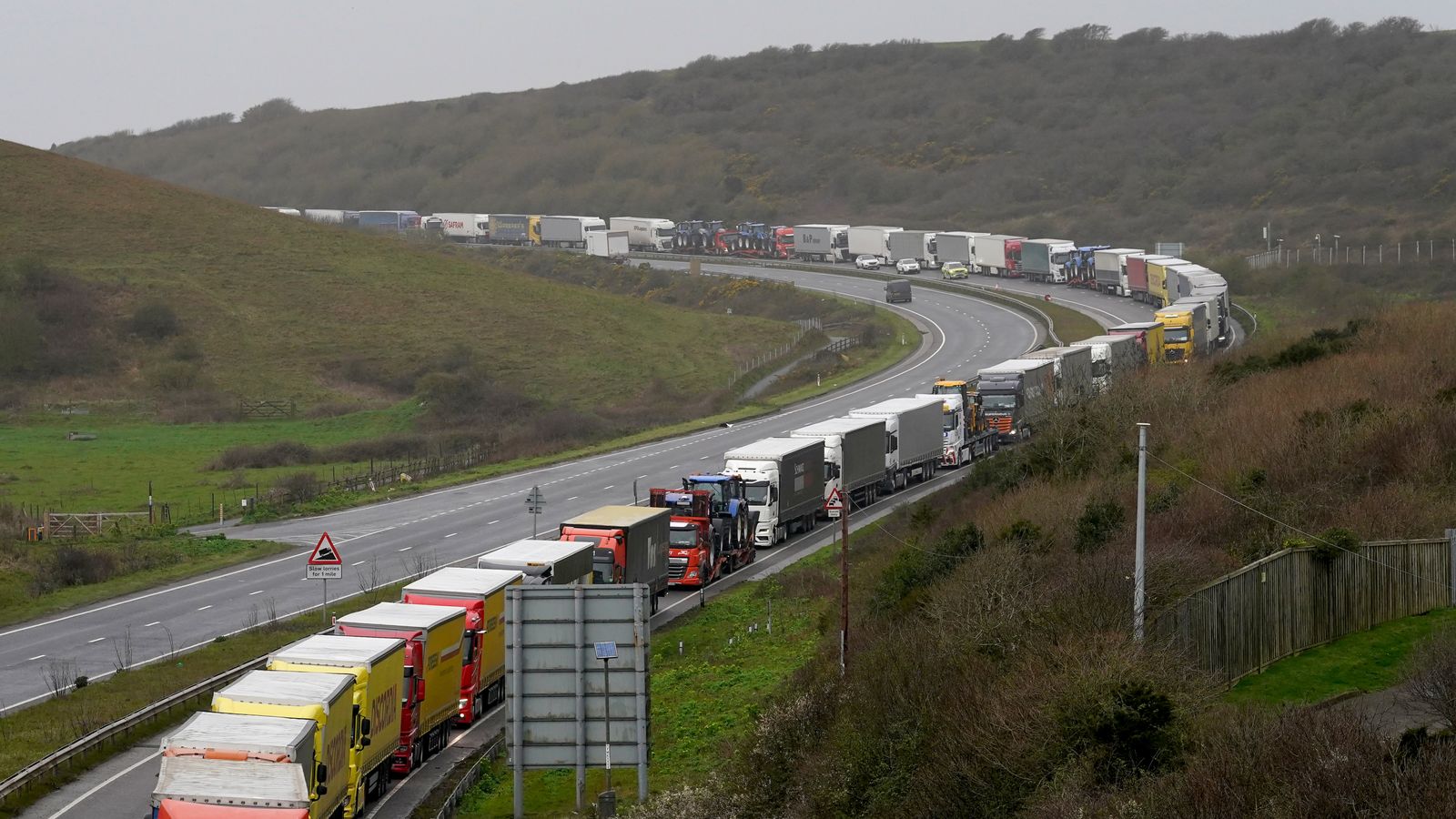If travel broadens the mind, thousands of schoolchildren got a lesson in the realities of Brexit without even leaving the country last weekend.
With the annual Easter peak for coach travel reaching pre-pandemic levels for the first time since the UK left the European Union, Dover ground to a halt in a spring squall.
Instead of heading for improving trips to European destinations, children were stranded for up to 18 hours, leading some schools to cancel their onward journeys altogether.
As teachers racked up £1,000 pizza delivery bills and the toilet queues traumatised, the chaos added new meaning to ending free movement.
Ferry operators are hoping to avoid a repeat this weekend by asking some coach travellers to delay their journey from the Good Friday peak, spreading bookings over the long weekend.
No solution to the central problem
That might avoid another meltdown but is no solution to the central problem, the need for every British passenger to show the French authorities a passport for checking and stamping.
That process, required only because of Brexit, may get even more onerous in November when a new EU security process that will require fingerprinting and biometric checks on every non-EU traveller.
Read more business
British apples under threat: How Brexit, supermarkets and the cost of living pushed growers to the brink
Why Geoffrey Howe was the greatest chancellor since the Second World War
By then we will have had another lesson in post-Brexit life, but this time the impact will be on goods coming into the UK, rather than British citizens trying to get out.
Imports are subject to many more checks than people, but for the last two years the UK has avoided disruption to food and wider supply chains by not imposing any.
While UK companies have faced full third-country customs processes on goods exported to the EU, European companies selling into the UK have enjoyed a practically free ride.
Changes to come and disquiet in the food trade
That will change in October, after the Cabinet Office confirmed that a new customs regime will finally be introduced almost three years after it was first scheduled.
Ministers have outlined what they called a “streamlined” border process for all imports to the UK.
They propose reduced checks for “low-risk” goods, a “trusted trader” model for regular importers, and physical checks will take place away from ports at border control posts, built at great cost for the original January 2021 deadline but largely unused since.
Please use Chrome browser for a more accessible video player
Some business groups have welcomed the commitment to simplify processes that have been hanging over British trade since 2016, but in the food trade there is deep disquiet.
More onerous paperwork will still be required for food and animal imports, and it is these processes that worry the industry.
To receive a sanitary and phytosanitary certificate – the regime that ensures food safety – EU exporters will for the first time need a vet to sign off shipments at the point of origin.
That means French cheese and Spanish cured meats will all need a local vet to sign them off, a process that could add prohibitive costs to small producers.
When UK companies faced the same requirements in 2021 the shortage of vets, and the £300 fee for every signature, forced some to stop exporting.
The UK remains a big market, but the recent tomato and salad vegetable shortage proved that European sellers have plenty of alternatives if the numbers don’t add up.
The government says the new system will be phased in, with paperwork required from October before physical checks begin in January next year.
Be the first to get Breaking News
Install the Sky News app for free
In reality, the cost of the paperwork is likely to be the pinch point and we cannot know how exporters will react.
Ministers promise the new system will be “world-class”, and even cite an annual £400m saving for business compared with the notional cost of the original plan which never even happened.
A more realistic comparison is between the current regime, which for EU exporters means the same minimal processes as before Brexit, and a new system with new processes and new costs that have never been tried before.
As plenty of schoolchildren can now tell you, that does not always end well.









